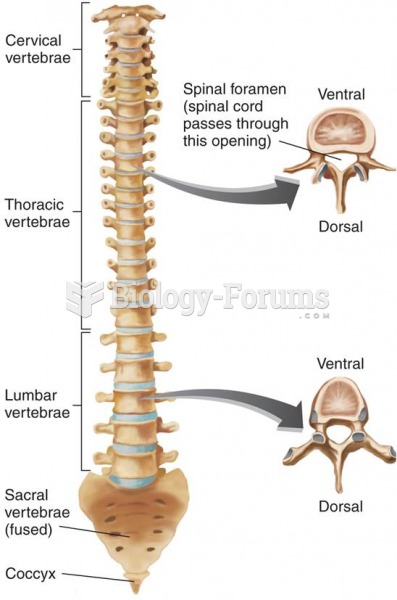This topic contains a solution. Click here to go to the answer
|
|
|
Did you know?
The most destructive flu epidemic of all times in recorded history occurred in 1918, with approximately 20 million deaths worldwide.
Did you know?
Asthma is the most common chronic childhood disease in the world. Most children who develop asthma have symptoms before they are 5 years old.
Did you know?
Approximately 25% of all reported medication errors result from some kind of name confusion.
Did you know?
Essential fatty acids have been shown to be effective against ulcers, asthma, dental cavities, and skin disorders such as acne.
Did you know?
Asthma cases in Americans are about 75% higher today than they were in 1980.
 Shy children often have a high arousal level in novel social situations. Over time, parents can help ...
Shy children often have a high arousal level in novel social situations. Over time, parents can help ...
 HIV-positive men with a high number of life stressors progress more quickly to AIDS than those with ...
HIV-positive men with a high number of life stressors progress more quickly to AIDS than those with ...





